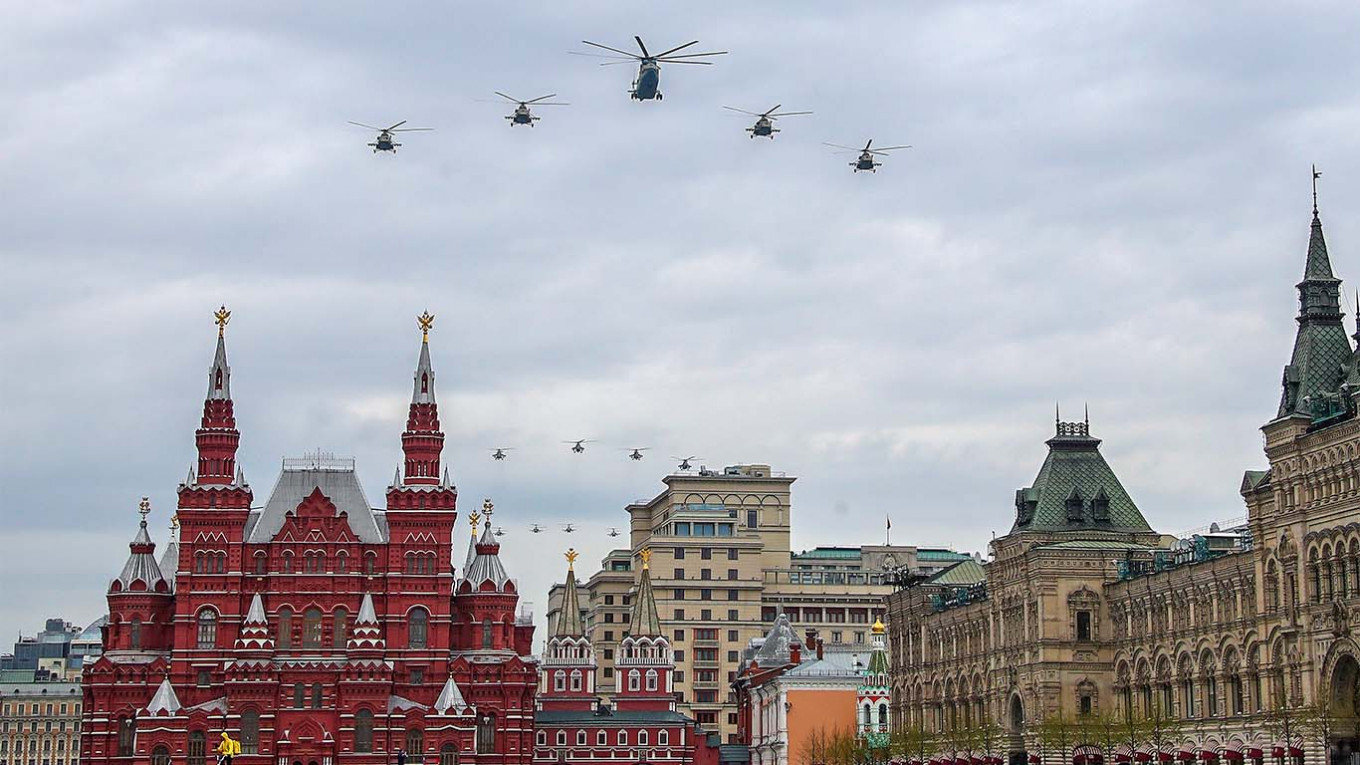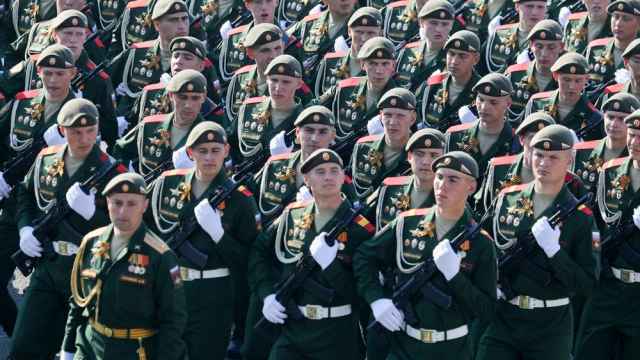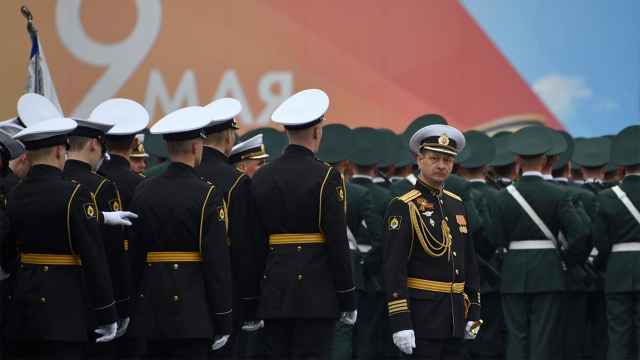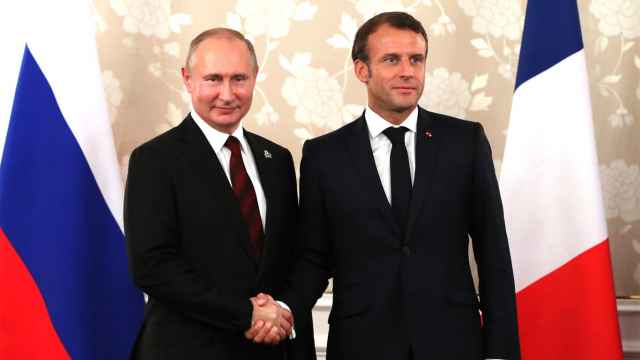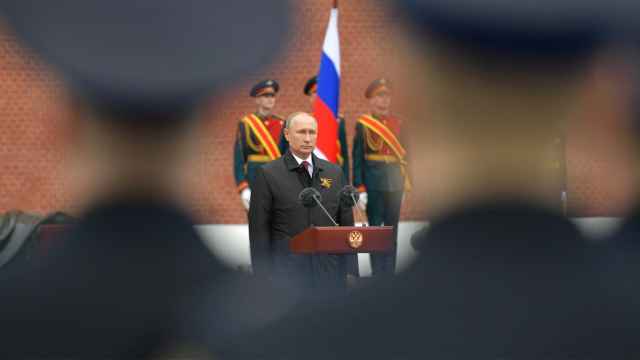Each year on May 9, Russians across the country celebrate Victory Day as the day of the Soviet victory over Nazi Germany in World War II.
This year's parade marking the 75th anniversary of Victory Day was meant to be a major showcase for President Vladimir Putin, with world leaders and veterans from all over Russia invited. But with the spread of the coronavirus showing no sign of slowing down in Russia, what was originally planned to be a display of military might will instead be a ghost celebration.
While the main parade in Moscow has been postponed indefinitely to try to contain the virus, several events are set to take place without the public or via online broadcast.
Here’s a look at how Russia plans to celebrate its victory in what Russians call the Great Patriotic War in the time of a pandemic:
Military air show
Instead of the traditional ground parade on Red Square, Russia's Air Force will stage an air show over the capital and other cities across the country.
“Seventy-five jets and helicopters will fly over Red Square in a single formation,” Interfax quoted Defense Minister Sergei Shoigu as saying. “There are also planned flyovers in 47 cities across the country and at Russian military bases abroad.”
A total of 660 aircraft will take part in flyovers across Russia on May 9, making it the largest military air display in the country’s history, BBC Russia reported, citing the Defense Ministry. The flyovers will be broadcast online and on television.
Immortal Regiment
The Immortal Regiment — normally a tradition in which millions of people in Russia parade with portraits of relatives who fought in World War II — will take place in an online broadcast this year.
Those interested in participating can submit a photo and brief description of their relatives through an online portal. If no photo is available, people can still submit their relatives' names and a brief description.
The broadcast will begin in Russia’s Far East and gradually move westward with the time zones. It’s expected that the online “march,” which has received more than 2 million submissions so far, will last more than one day.
At 7 p.m. local time, participants in the procession will go to their balconies with photos of their relatives and sing the song ‘Den Pobedy’ (Victory Day) together.
Shoigu said that campaigns are also underway to allow Russians to send postcards or make phone calls to World War II veterans.
Fireworks
One part of this year’s Victory Day celebrations that won’t be affected by the coronavirus is the fireworks display that traditionally marks the end of celebrations.
The fireworks will start at 10 p.m. local time across the country and will include artillery salvos, Shoigu said.
"Each salvo will be dedicated to the name of a war hero, the name of a military formation or a memorable event," Shoigu said.
Online concert
Russian rock artists such as Uma2rman, Alexander F. Sklyar, Svetlana Surganova and more will perform popular wartime songs in the “Songs of Victory” concert, which will air online and on television.
"The goal of the ‘Songs of Victory’ project is to find a new sound within old songs that have been beloved for generations,” the concert’s organizers said.
Online lectures and films
Authorities in Moscow have created an online portal where you can watch lectures, films and documentaries about the main events of World War II.
From May 6-15, Moscow’s libraries and cultural centers are holding more than 270 online events about the history of the war.
Virtual tour
Authorities have created a mobile app that allows users to take a virtual tour of Russian cities and towns that played a special role in the war. Historic places are marked on the map with a star. If a user clicks on a star, they will see photos and a description of the location and its history.
Where will Putin be?
Putin will lay flowers at the Eternal Flame near the Kremlin walls before giving a speech to the public, his spokesman said.
A Message from The Moscow Times:
Dear readers,
We are facing unprecedented challenges. Russia's Prosecutor General's Office has designated The Moscow Times as an "undesirable" organization, criminalizing our work and putting our staff at risk of prosecution. This follows our earlier unjust labeling as a "foreign agent."
These actions are direct attempts to silence independent journalism in Russia. The authorities claim our work "discredits the decisions of the Russian leadership." We see things differently: we strive to provide accurate, unbiased reporting on Russia.
We, the journalists of The Moscow Times, refuse to be silenced. But to continue our work, we need your help.
Your support, no matter how small, makes a world of difference. If you can, please support us monthly starting from just $2. It's quick to set up, and every contribution makes a significant impact.
By supporting The Moscow Times, you're defending open, independent journalism in the face of repression. Thank you for standing with us.
Remind me later.


